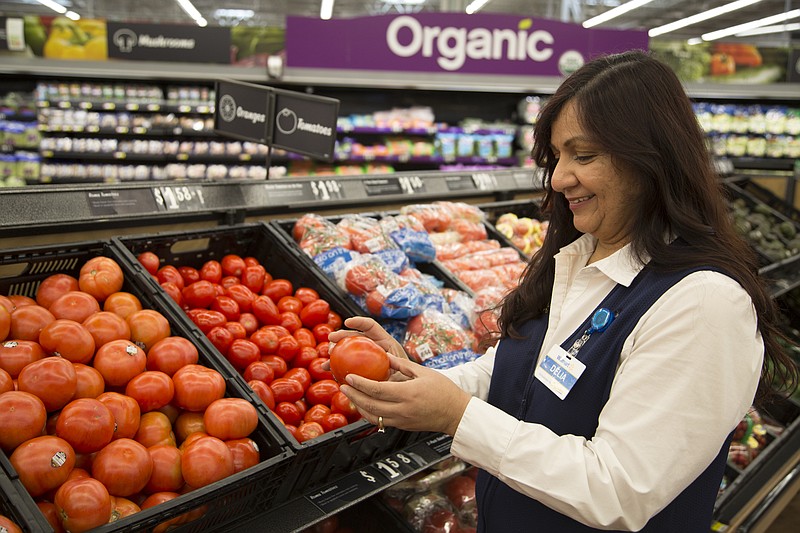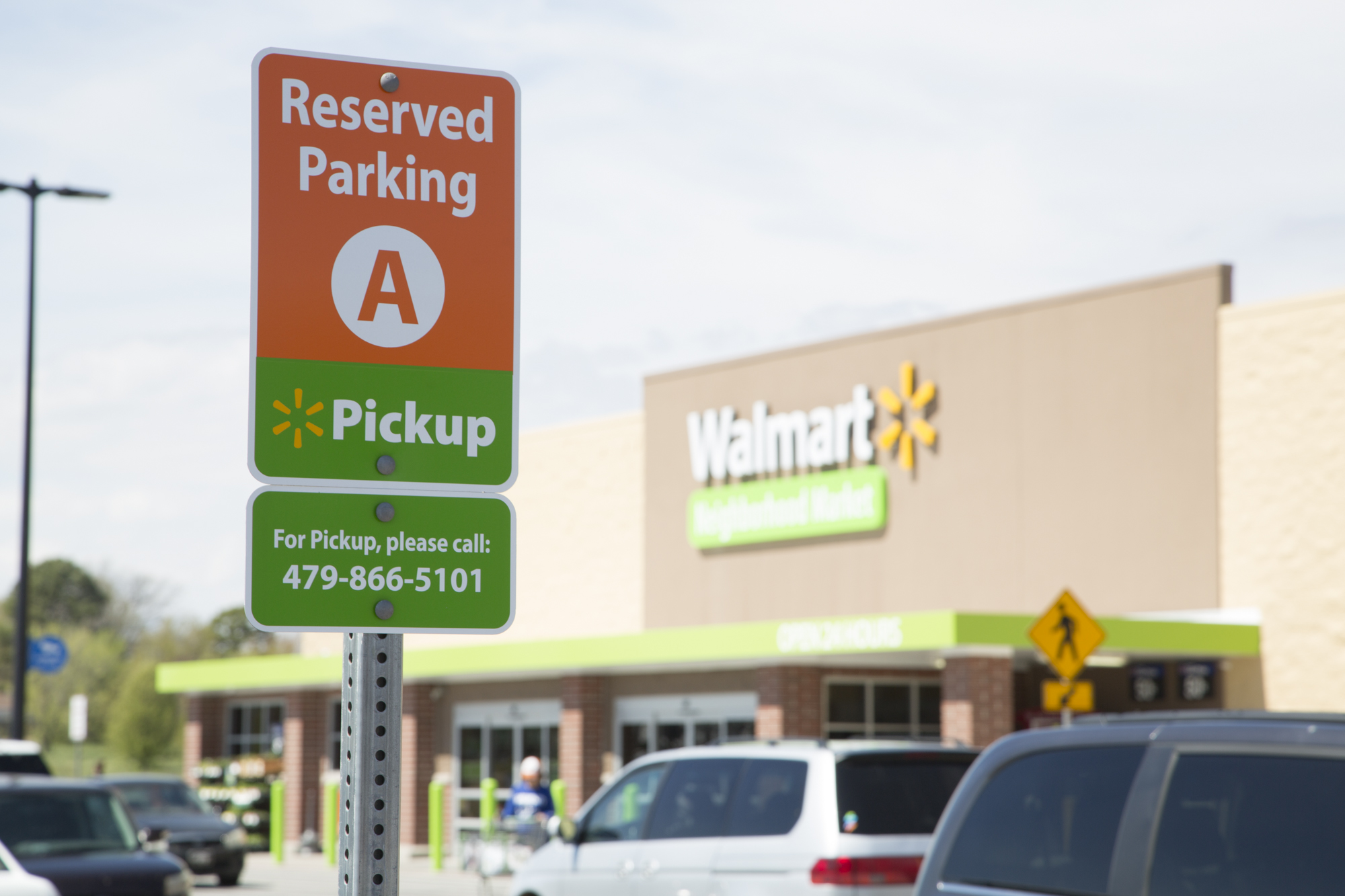E-commerce sales growth
2014 - $294 billion2015 - $325 billion2016 - $355 billion2017 - $385 billion2018 - $414 billionSource: Estimates of e-commerce sales by Forester Research.
Chattanooga consumer spending is expected to outpace inflation again this year. But much of that growth won't help local merchants.
Many people simply aren't shopping like they used to, reluctant to leave their couch or to spend time browsing through traditional brick-and-mortar retailers in favor of buying products quicker online on their phone or computer.
The shift from bricks to clicks is helping fuel the growth of Amazon and other online businesses which have already added thousands of jobs in Chattanooga. But the fallout from the growth in e-commerce is also taking its toll on conventional retailers.
E-commerce has grown its share of all retail sales from 5.1 percent five years ago to 8.4 percent by the end of 2016 and experts expect the growth in online sales to continue to outpace brick-and-mortar sales.
Conventional retailers complain that the shift is driven by more than just convenience. In many instances, online retailers don't pay equivalent sales taxes because of sales tax exceptions if they don't have a presence in a state. Gov. Bill Haslam wants to help level the retail playing field by requiring online retailers to collect sales taxes on goods purchased by Tennesseans from businesses with more than $500,000 in annual sales.
Although the measure is yet to be approved by the Tennessee General Assembly and likely faces a court challenge even if adopted, backers say the change should help pressure Congress or the Supreme Court to address the issue nationally.
"This isn't a new tax," Haslam says. "This is a tax that's already owed on goods that are just being bought a different way, and it's just not fair to our local retailers – our local retailers who pay property tax and collect sales tax and sponsor the Little League baseball team. For them to do all that and to be at a price disadvantage with somebody out of state who doesn't have to, that's just not fair."
The law would challenge a 1992 Supreme Court decision, Quill Corp. v. North Dakota, in which the court ruled that businesses must have a physical presence in a state to collect a sales tax in that state. The court determined it would be too burdensome to require every retailer to figure out and collect the sales taxes for each municipality or school district in which one of its customers reside. Conservative groups have objected to what they say would be an extra burden for online retailers to collect taxes, which in most instances individuals are supposed to report and pay at tax time.
"There is nothing fair about forcing a small, online business in Tennessee to play the role of tax collector for California," says Heritage Action's Chief Executive Officer Michael A. Needham.
But with the continuing growth of online sales, lawmakers such as Tennessee Republican U.S. Sens. Lamar Alexander and Bob Corker, have pushed for federal legislation to require online merchants to collect sales taxes for local governments since computer programs now make such calculations relatively easy to calculate.
"It's a tax that some people are paying and other people aren't, even though they owe it," Alexander said when he helped push the Marketplace Fairness Act in 2013. Individuals are supposed to report their online purchases and pay the sales taxes due at tax time in states like Tennessee. But there is little way to enforce that requirements for most people and such payments tend to be sporadic and uneven at best.
Despite approval of the U.S. Senate, the federal proposal to tax online sales failed to pass the U.S. House of Representatives. But in 2015, U.S. Justice Anthony Kennedy suggested the Quill decision should be revisited, prompting Alabama and South Dakota to force the issue with state laws to require online retailers to collect local sales taxes for goods sold in their states.
A similar measure won preliminary approval for Tennessee in December from the Legislature's Government Operations Committee, but the measure must still be approved this year by the 110th General Assembly. If approved, online merchants opposed to the measure have vowed to challenge the new tax in court.
Tennessee Revenue Commissioner Richard Roberts, who estimates that Tennessee has missed out on as much as $450 million in annual sales tax from out-of-state sellers, says he would welcome a lawsuit if the proposal moves forward in the new year.
Online retailers in the Chattanooga area, including Tony Kornrumpf with Hoops Enterprise LLC in Chattanooga and Susan Hyder with Cleveland-based HyderHangout, warn that the Tennessee online tax could end up hurting the Volunteer State by punishing local businesses that rely upon e-commerce for their sales.
"While the rule appears to be targeted only at out-of-state sellers, it could actually cause a boomerang effect that would bring real and serious harm to retailers and businesses right here in Tennessee," the online merchants said in a letter to the Department of Revenue.
They warned the Haslam administration's proposed regulation "would encourage other states to impose similar obligations on Tennessee businesses that sell to customers in other states - a situation that could lead to a chaotic patchwork of tax regulations and laws that reach beyond state borders and into Tennessee."
While legislators debate the merits of taxing more online businesses, Internet sales continue to grow. Amazon, the world's biggest Internet retailer, boosted its online sales last fall by more than 26 percent above the previous year. To handle that growth, Amazon added thousands of workers at its fulfillment centers in Chattanooga and Charleston, Tennessee, prior to Christmas last year, briefly making the online retailer the biggest private employer in Southeast Tennessee.
That sales surge, to some extent, has come at the expense of traditional retail department stores. Kmart, once one of America's biggest retailers, closed its last Chattanooga store in Hixson in mid December. J.C. Penney, Sears and Sports Authority also have shuttered local outlets over the past three years.
Even the biggest retailer in Chattanooga, Walmart, is moving more sales online. Walmart, which opened a half dozen grocery-only Neighborhood Markets in Chattanooga in 2015 and 2016, paid $3.3 billion to acquire Jet.com, one of the fastest growing online retailers.
"Given the convenience of e-commerce, the consumer needs a really good reason to go to a store and park their car," says Edward Yruma, a managing director at KeyBanc Capital Markets. "It has to be exciting and have something new, because if not, why wouldn't I sit on my couch in my pajamas and shop on my iPad?"
Conventional retailers have responded by trying to make their stores more inviting and appealing to shoppers and browsers. Some also are doing more to deliver their products directly to consumer homes or to allow consumers to pick up items they order without getting out of their car.
Last year, both of Chattanooga's biggest grocery chains, Food City and Wal-Mart, added pickup services to allow shoppers to order their groceries online and to pick them up at the store. Wal-Mart even added an app to allow the store to track when consumers were coming to pick up their food items so crews were ready to load the pre-bought groceries into consumer cars parked in specially designated pickup areas. Shipt, an Alabama delivery company that created a computer app with Publix, even began delivering groceries to homes and businesses during 2016.
Similar home delivery services began last year in Chattanooga for those wanting delivery of their favorite beer, wine or spirits. The Delivery Guy hooked up with Riley's Wine and Spirits in Hixson to bring alcoholic drinks to residents in Hixson, North Chattanooga and Red Bank and Brown Bag Delivery started what founder Dewayne Williams hopes will become a national company delivering drinks and offering bar tending services for homes and businesses.
"We're here to keep the good times rolling, to keep the party people together without stressing over who is still sober enough to run to the store, or spending far too much time fighting over the perfect drink to bring back for everyone," Williams says.

